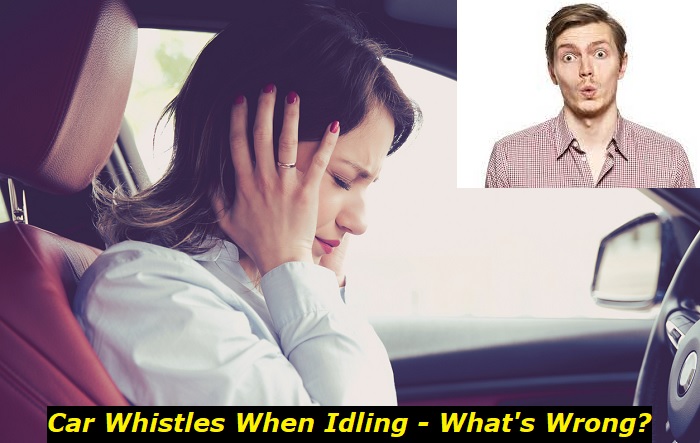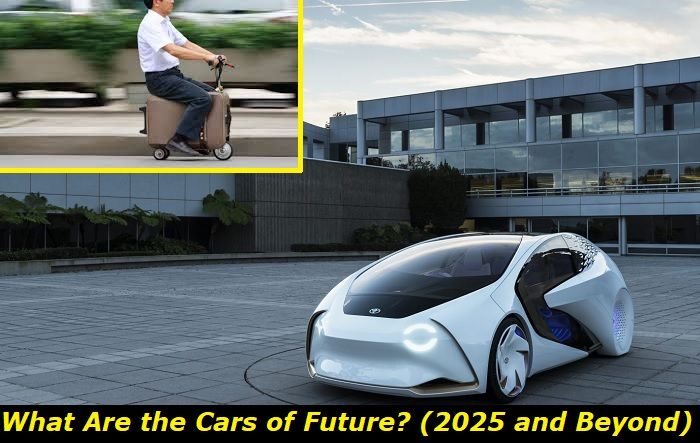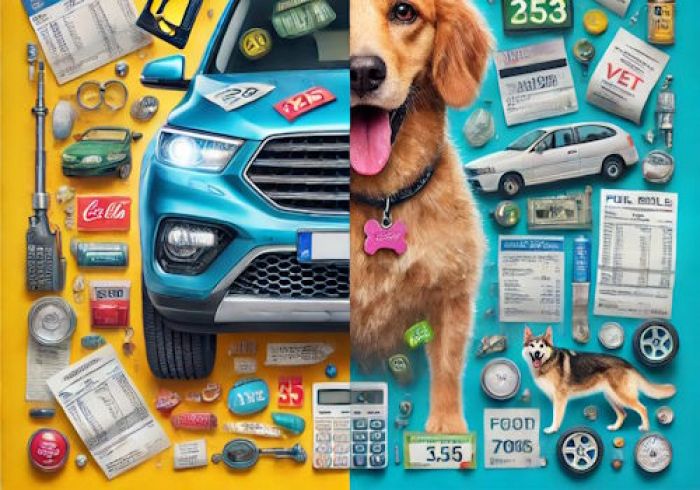Our readers often ask me why their cars whistle in all different kinds of ways. One of the most common questions is why the car whistles when idling. I was pretty confused and couldn't answer this question till people started sending videos showing this whistle. Now I've listed several reasons why this may happen and I'm going to share all the information I know with you.
In short, the whistling sound when the car is idling may mean problems with your drive belt or tensioner, turbocharger, alternator bearings, climate system fan issues, vacuum leak, water pump problems, etc. I will describe the issues that are most likely to cause this annoying whistling sound but I should also warn you that these issues are not always that easy to locate and there may also be other problems.

So, if you aren't really into car diagnostics and don't want to spend hours trying to find the actual reason for your problem, you better go to professionals and have your vehicle repaired.
Let's get started!
What are the most common reasons for whistling sounds when the car is idling?
Unfortunately, the internet is horribly wrong about this problem. In most blogs that describe this issue, you will read that the vacuum leak is the most common and even the only reason your car may whistle when it idles. But it's not true. Vacuum leaks are not really common and are pretty easy to locate - just inspect the undercarriage of the vehicle when it idles and you will find the problem.
But there are other issues that can more commonly cause whistling and are way harder to locate. Here they are:
1. Drive belt and tensioner
When you start your car and immediately hear some whistling, the most likely reason is the drive belt. When it stretches more than the tensioner can compensate, the belt becomes loose and just slips over the pulleys. Also, the pulleys themselves may make some noises resembling whistling if they are old and worn out.
The drive belt will then stop whistling when you start driving or you may not hear this whistle because the RPM of your engine goes up.
The only way to solve this whistle is to replace the belt with the tensioner. Also, look at all the pulleys that this belt drives and see if they require replacement, too. Drive belts usually last about 100K miles, but sometimes, they may fail unexpectedly.
2. Climate system fan whistle
This problem is very common for all vehicles and it may seem that the whistle comes directly from the engine bay. But it doesn't. The fam is located under the front panel in the interior of your car. Most often, it's placed under the glovebox or behind it. Modern fans are barrel-shaped and they rotate on a metal axle.
When such a fan is old and worn out, it may start whistling when turned on. Given the climate control system in your car is most likely activated automatically when you start the car, you will hear the whistle while your engine is warming up. Then, when you start driving, the whistle may not be heard.
The solution for the whistling climate control fan is to replace it. Also, you may want to use some lubricants to let it rotate without making any noise. But lubrication will not last long. Also, it's not always easy to get to the fan and take it off, so I would buy a new one and forget about the problem if I needed to repair this issue.
3. Water pump
I hope this is not the water pump in your case, because replacing this thing is not something you will want to do. The water pump in most engines is placed under the timing chain cover and is pretty hard to reach. If it fails, you will most likely need to replace the timing chain kit along with the pump.
Here's a simple tip on how you can locate that the whistling sound is coming from the water pump: if you checked everything else and the whistling sound is still there in the bottom part of the engine, you may be sure that it's the water pump. Don't ignore this sound. If the water pump fails, you will not like the consequences of the overheated engine.
4. Turbocharger
Another possible culprit of the whistle in your engine bay when idling is the turbocharger. In almost all vehicles, turbocharges are not activated when the engine idles. But if something goes wrong like there is a leak of air or a glitch of control units, the turbo may be slowly rotating. It may cause this very strange whistling sound that is hard to locate.
The whistling turbo will most likely tell you about the air leak because it whistles when the air goes out of some pipe or hose under high pressure. But also, parts of the turbocharger may be whistling. In this case, you will need to repair the turbo or basically replace the insides of it because of some free play.
5. Vacuum leak
Air leaks are not really as common as the internet may tell you sometimes. Vacuum leaks may happen in the exhaust system and this may cause whistling. But the majority of people asked me about the whistle when idle while the vacuum leak whistle will likely go louder when you raise the RPM of the engine.
If this is the case with your car, you may want to place a vehicle on the lift and turn the engine on. Then go directly under the car and see if there are cracks or some other problems with the exhaust manifold or exhaust pipes, catalytic converter, and muffler. If there are leaks, you will need to go to the exhaust shop and have the problem repaired.
6. Alternator bearings
Another problem I want to outline is alternator bearings. Your alternator may make all kinds of different sounds and may mislead you when you are trying to locate the issue. Its bearings are going to whine and whistle when they are about to die. They also may make some kinds of sounds reminding the sounds of a broken transmission.
So, it's really worth checking out the alternator if you are experiencing these issues in your vehicle. The alternator may whistle when idling and it may stop whistling when the engine adds some RPM.
To repair the problem, you will basically need to replace the bearings which are not that cheap. But the labor will cost some money because taking the alternator off and taking it apart are not some trivial tasks.
Can you keep driving with a whistling sound when the car idles?
In the best possible scenario, you should immediately locate the issue and understand which part is whistling. Of course, it's not that easy to make, especially if you are on the roadside with no tools in your trunk and with no access to help from professionals.
But anyway, you should listen to the intensity of the whistling sound. I recommend driving more carefully, in this case. So, slow down, take the right side of the road, and keep listening to all suspicious sounds in your vehicle.
Here's when you should stop:
- your car changes the way it goes on the road, you feel some problems;
- the whistling sound becomes more noticeable and louder;
- the car starts showing you some error messages and warning lights;
- you notice the change in the power and acceleration;
- the vehicle loses handling or brakes.
Whenever you happen to notice these issues, you should be ready to stop the vehicle and call for help. Tow truck or roadside assistance are your best helpers in such situations. Please don't drive your vehicle if you aren't sure that it's safe for you and all the other people surrounding you on the road!
What to do once you hear this whistling sound?
Well, it's important to react properly to every problem your car throws. If you ignore such issues, you may end up having a faulty and dying vehicle in a couple of years or even months.
If you hear the whistling sounds when your car idles, here's what you should do:
- if it's possible, don't drive the car until you find out the reason for the problem;
- try the DIY solutions for locating the problem with the vehicle that are described above;
- if you can't find out what the problem is, just ask professionals for help;
- have the vehicle repaired in a trusted repair shop or in the dealership;
- enjoy driving your car without any sounds and bad effects on safety.
I won't tell you that the whistling car is something you can deal with on your own. In most cases, even to locate the issue, you will have to visit a repair shop. But you may also try some DIY methods to diagnose the car after reading this article.
I hope I answered all your questions regarding the whistling sounds in your vehicle. If you have any other questions, please ask them in the comments below.
About the authors
The CarAraC research team is composed of seasoned auto mechanics and automotive industry professionals, including individuals with advanced degrees and certifications in their field. Our team members boast prestigious credentials, reflecting their extensive knowledge and skills. These qualifications include: IMI: Institute of the Motor Industry, ASE-Certified Master Automobile Technicians; Coventry University, Graduate of MA in Automotive Journalism; Politecnico di Torino, Italy, MS Automotive Engineering; Ss. Cyril and Methodius University in Skopje, Mechanical University in Skopje; TOC Automotive College; DHA Suffa University, Department of Mechanical Engineering





Add comment